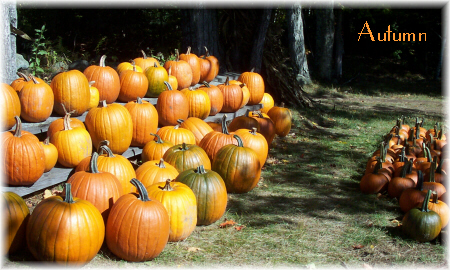I like winter a lot. I say that with full acknowledgement that I love being outside and that I love warm weather, and that winter keeps me from enjoying both of these things. I'm not a skier, and I tend not to spend a lot of time outdoors when it's really cold. Most of my running is done on a treadmill, which is something that I don't particularly care for. So when all is said and done, there are many aspects of winter that one could say are fairly negative for me. However, that doesn't stop me from loving the season, no matter what it may bring.
Because I choose to live in a place with a cold climate, it really is important that I do love the season. I'm not in northern Canada, of course, so it isn't like winter lasts for nine months where I live, but we do have a long winter season that's quite cold most of the time. And that makes it important for me to find the things about the season that I really like, so that I don't spend a lot of time thinking negative thoughts and wishing things were other than they actually are.
Most importantly, I love the intimacy. Because people aren't outside nearly as often, the indoor parts of our life are much more dominant. To me, there's nothing like coming inside after being out in the cold, enjoying the warmth and the light and the company wherever I am. Days tend to be darker, so the light is warmer and more inviting. Because people are together more, the sense of connectedness is stronger. People can spend more time talking and enjoying each other's company. Of course, this was better when I was young and people didn't turn to the Internet or put in movies or play video games when they couldn't go outdoors. When I was young, winter was a time for baking more, playing board games, building forts on the couch, or simply drinking a hot cup of coffee or cocoa and talking. But even if we don't connect with each other as much as we used to (one of the real shames of our modern society), I still love the intimate feel of being indoors on a cold winter day.
I also love the scenery. The silhouettes of the trees against the grey sky, the glittering snow and ice under blue skies, the snow drifting softly to the ground, the snow lying softly (or heavily) on the branches of the pines. We don't have any outdoor flowers for a while, but we do have beauty to behold nonetheless.
Winter also brings a mood. Early in winter, we feel the shift as we go from the beautiful autumn days to the harsher winter days. In mid-winter, we may feel even a bit of nervousness as we wonder what kinds of storms and snowfalls the season may bring. Winter has its hold on the world, and we have to let go of our want for warmth and completely accept what the season brings. But that's also the time when we feel the first sparks of the hope in our hearts that spring will come, that the darker and colder time will eventually run its course and move out of our lives once more, leaving us with more light and more warmth, allowing us to go outdoors once more and enjoy the new flowers and warmth and greenness of the world.
Of course, there are also hikes in the winter through the snow, either in boots or snowshoes or even on skis. There are skiing and snowboarding, and many other winter sports that are quite enjoyable. And they're different. They offer us ways to enjoy the snow and cold rather than giving up on being active altogether, and they offer us chances to enjoy the scenery and to challenge ourselves in different ways.
I have to say that food is one of my favorite things of winter, too. We tend to eat differently, with more heavy stews and soups with rolls and vegetables. The colder temperatures keep us looking for sustenance, and while it's important not to overindulge and sabotage our health, it's also nice to enjoy what's offered in the winter. In many places, some dishes are offered only in the winter--I remember a restaurant in Germany that served a wonderful Apfelstrudel, but it was available only during the cold months.
There is much to love about the winter. The season offers us many new and different experiences, and if we spend our time simply hating winter and wishing that spring would come, we face a very real danger of not living our lives fully, not taking advantage of what each day has to offer. No matter where we are or what we're doing, we can find positive aspects of our situation, and often it's up to us to make the best of what we have if we want to be happy and fulfilled.









